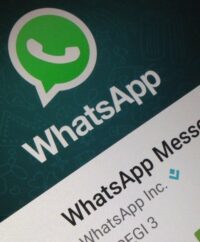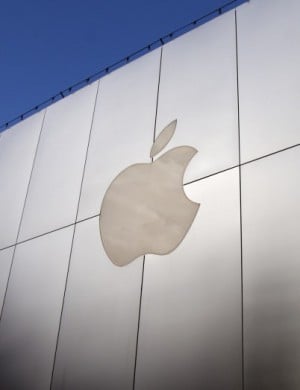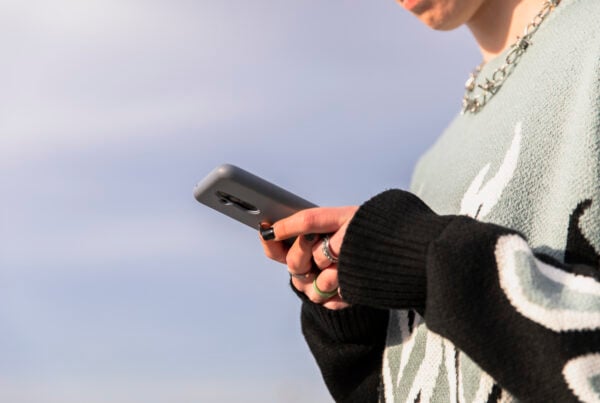Find out the week’s top mobile stories from around the world.
This week.. Facebook begins monetising Whatsapp with business messaging, Verizon will trade your personal data for concert tickets, FCC proposal to classify mobile as broadband, Europeans are catching up with Asia for mobile payments and much more…

Facebook looks to begin monetising Whatsapp with business messaging features
Mobile Marketing Magazine
Facebook has confirmed its plans for monetising WhatsApp, after launching a pilot last week that enables businesses to create verified accounts and communicate directly with the chat app’s users.
WhatsApp will eventually charge companies to use the two business tools that it began testing as part of the pilot, though it is not clear what parts of the tools businesses will have to pay for or when they will have to start paying.
“We want to put a basic foundation in place to allow people to message businesses and for them to get the responses that they want,” Matt Idema, WhatsApp COO, told the Wall Street Journal in an interview. “We do intend on charging businesses in the future.”
Verizon will now trade you your personal data for … concert tickets
Mashable
It’s an open secret that there are a ton of companies jockeying behind the scenes to collect as much of your personal data as possible so it can then sell ads that target you.
But most of those companies aren’t quite as honest about it as Verizon.
The telecom giant has a new plan to get your data, and it’s admirably straightforward — Let Verizon track you on the web, in apps, and even where you are in the real world, and Verizon will give you everything from concert tickets to phone upgrades in return.
The program is called Verizon Up, and it will replace its old program, Smart Rewards.
It’s about as explicit a deal for your personal data as you can find. While most companies implicitly gather your info — use our services for free and in the background we’ll be watching what you do and then selling ads off of it — Verizon’s new program might be the most transparent ploy for data yet.
Read more…
The FCC’s dangerous proposal to classify mobile as broadband hides a good idea
Tech Crunch
There’s an FCC proposal that everyone is up in arms about, but it’s not net neutrality. Or the privacy thing. Or prison calling reform. Or any of the other things. This one proposes equating mobile and fixed broadband for the purposes of tracking the health of internet access in America. That’s a bad idea for several reasons — but there’s a good one hiding right next to it.
The proposal is part of an annual report on broadband deployment for which the FCC is responsible. They and others use this data to inform where to invest in infrastructure, where to send federal aid and so on. Naturally, as the broadband landscape evolves, the report must evolve with it.
And it is in this spirit that the FCC asks if it should focus its inquiry on “whether some form of advanced telecommunications capability, be it fixed or mobile, is being deployed to all Americans in a reasonable and timely fashion.”
Read more…
Europeans slowly catching up with Asia for mobile payments
Computer Weekly
Consumers in Europe are beginning to warm to making payments using their mobile phones, according to research from ACI Worldwide and Aite.
The survey of more than 6,000 consumers in 20 countries found that the developed countries of Europe, as well as the US, are beginning to catch up on the developing regions, such as in Asia and Latin America in terms of the use of smartphone-based payments.
However, mobile take up will not be as fast in the UK due to the success of contactless credit and debit card payments.
In Europe, Spanish consumers are the most active, with a quarter (25%) making payments using mobile phones regularly, followed by Italy (24%), Sweden (23%) and the UK (14%). In the US, 17% of people regularly use their smartphone to make payments.
Read more…
As consumers obsess with mobile devices, engage them with health apps
Healthcare IT News
The number of smartphone connections is expected to reach six billion by 2020, accounting for two-thirds of the nine billion global mobile connections by that time, according to a report from GSMA. U.S. consumers already are spending about five hours per day on their mobile devices, according to a report from Flurry Analytics.2 So, how can healthcare get its share of this screen time to better connect and engage patients?
“Mobile technology adoption has skyrocketed, along with the amount of time consumers spend on their mobile devices. And, with the emergence of smart devices – from virtual assistants such as Amazon Alexa to wearables like Apple Watch – a significant opportunity exists for healthcare apps and services that are designed to be easily accessible via the devices consumers are already using on a daily basis,” said Joanna Gorovoy, senior director industry solutions marketing, Axway.
“Patients are demanding convenient access to health information and services online or via a mobile app. They already use apps on their smartphone to manage different aspects of their daily life, so their expectations around digital healthcare experiences have also evolved.”
Read more…
Shoppers flitting from mobile to other channels leading to costly cart abandonment
Internet Retailing
Consumers switching from mobile phone browsing to laptop purchasing – plus a lack of discount incentives and desire for a variety of delivery options – are key reasons for ‘basket abandonment’, and are costing British retailers some £3.4billion a year.
So finds the Barclays Corporate Banking Online Retail Report, From Browse to Buy: The Conversion Challenge and are based on the views of 300 senior retail managers, 2,000 UK consumers and economic modelling. The study found that making online shopping more convenient could boost retailers’ coffers by £10.5bn within just five year.
At an uncertain time for the retail sector, the report estimates that investing in measures that encourage purchase conversion could cut basket abandonment in half by 2021.
Read more…
Mobile and single sign-on access pose biggest risk to future ID verification
Business Matters
Research revealed today finds that whilst nearly three quarters of fraud professionals think mobile devices will be the key facilitator of identification in the future, over half feel that they will present the biggest single point of compromise for fraud in the future.
Currently, just 43 per cent of UK organisations are using mobile phone checks as a form of identity verification but one in five are planning to implement it over the next three years. This is unsurprising given that half of respondents believe that name and address data will be obsolete as a verification measure in the future.
The research indicates that companies are moving towards digital attributes such as email address and devices. When asked which piece of customer data provides the most fraud risk insights, email addresses came second with 44 per cent.
Read more…
Mobile power payments and smart meters plug in Tanzanian homes
Reuters
When Asteria Lymo saw her prepaid electricity meter was short of units, she grabbed her smartphone and bought some using Tigo Pesa, a local application that allows customers to pay their utility bills on their mobile phones.
“I simply transferred the money from my bank account into my phone to buy electricity,” said the 35-year-old mother of three. “It’s fast, easy to use, efficient and saves a lot of time and money.”
With 10,000 Tanzanian shillings (about $4.50), Lymo bought 28 kilowatt-hours (kWh) of energy – enough to power her home for one week. Previously, that would have meant standing in a queue for an hour to buy electricity coupons at a vending kiosk.
Read more…
Apple under pressure from Indian regulator amid privacy worries
Financial Time
Apple is coming under pressure from India’s telecom regulator to add a government anti-spam mobile application to its App Store, in the latest manifestation of tensions over digital privacy.
The Do Not Disturb app, launched by the Telecom Regulatory Authority of India in July last year, allows users to file complaints about unsolicited commercial calls.
But Apple has so far resisted the regulator’s proposal that the app be made available to Indian iPhone users. A person with direct knowledge of the talks said Apple’s stance stemmed in part from worries about data privacy, with concerns that the app would gain access to users’ full call history.
Read more…
Reaching consumers in the mobile moment with programmatic display
The Drum
IAB’s latest advertising stats have shown that mobile ad spend has increased 50.8% year-on-year, with ads on mobile making up a massive 38% of overall digital ad spend.
Consumers are becoming increasingly mobile-connected; rather than simply being used as a research channel, mobile is growing as the device used to make purchases, which opens up a range of exciting and creative opportunities for advertising tactics to be used that are unique to mobile.
The very personal nature of the mobile device allows brands to create a one-to-one experience, giving the opportunity to engage with users on a personal level. We take a look at some of the formats and tactics that can form your programmatic display approach on mobile.














